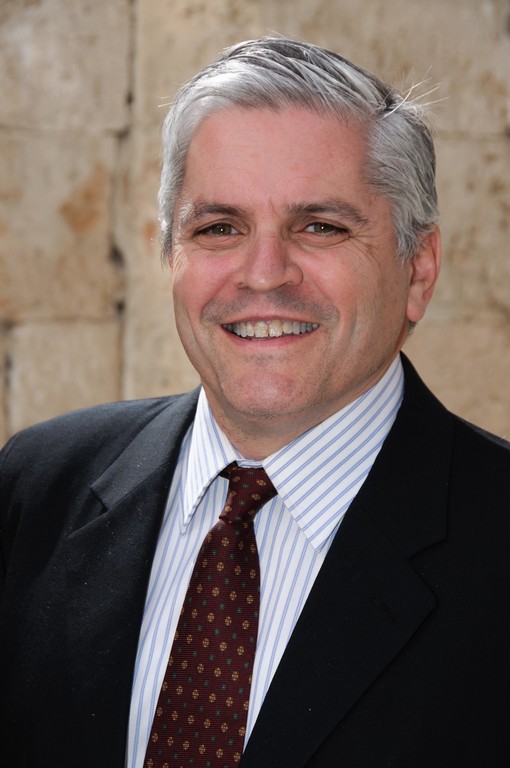Joseph’s fresh insight just what Egypt needed
Sometimes, things seem so obvious you start to wonder why you are the only one who seems to get it.
This week’s portion, Miketz, begins with a fascinating story that gives us a glimpse into what we might be missing. Joseph, an imprisoned slave in Egypt, is called to the palace to interpret the dreams of the great Pharaoh.
Pharaoh is deeply troubled by two dreams that apparently leave him no rest. Seven fat, robust cows are devoured by seven sickly dying ones. In a second dream, seven seemingly healthy wheat-stalks are devoured by seven dying ones.
Joseph’s interpretation: Egypt will experience seven years of plenty, followed by seven years of famine that will overshadow or ‘devour’ the previous years of plenty.
Now Pharaoh needs a plan, and Joseph offers the solution: Stockpile during the seven years of plenty, and distribute food in exchange for land during the years of famine. This will not only allow Egypt to survive the difficult famine, but will also consolidate her status as the economic power in the region.
Ultimately, Joseph is appointed viceroy and as the second highest official in Egypt becomes the instrument for affecting this policy.
This scenario is nothing short of incredible. Joseph’s solution does not seem to be a stroke of genius (why are all the advisers and ministers of Egypt, the greatest country on earth at the time, incapable of arriving at this same conclusion?).
Additionally, the idea that the ruler of the empire is actually soliciting and relying on the interpretation of a slave wallowing in prison, not to mention subsequently asking for his solution to his own interpretation, resulting in the appointment of said slave to one of the highest posts in the world, is absurd. What is really going on here?
Incidentally, this portion of Miketz is always read on the festival of Chanukah. What is the relationship between the story of Chanukah and the rise of Joseph to power in Egypt?
Dreams are an opportunity for us to discover more about who we are, where we are really at, and what is in our hearts and minds. Of course, their ability to impact our lives depends entirely on our ability to interpret them. So everything depends on our perspective, and often on our success in changing our perspectives, or seeing things outside of the box.
Joseph in ancient Egypt represented an entirely different way of seeing things.
The ancient Egyptians worshipped nature as the source of all life. They worshipped the power of nature, as well as idolizing all aspects of the natural order. Thus, they deified the Nile, which they felt was the source of all sustenance in this world. Central to their ideology and beliefs, therefore, was the concept that the strong survive, and might makes right, as nature dictates.
The idea therefore that pale, dying, sickly animals could be devoured by fat healthy ones was contrary to the natural order and everything they believed. After all, the lesson of nature is that the strong survive and the weak perish.
Joseph is offering Egypt a different way of seeing things. The strong and the weak can live side by side and help each other. Ultimately, in becoming the viceroy of Egypt, Joseph will have the chance to practice what he preaches.
A thousand years later, the Greeks also worshipped nature and deified beauty. To be sure, there is a beauty in nature. But it is precisely that beauty that can lead man to find G-d in the world, not to ignore Him.
And this really is the central message of Chanukah — that victory was meaningless if it was only in the service of man. What made it significant was the recognition of a greater truth — the re-dedication of the Temple, and the re-establishment of man as serving G-d.
In fact, the name Chanukah may also be related to the word chen, meaning inner beauty.
If Chanukah were about military victory, there wouldn’t really be much to celebrate. Judea’s Hasmonean dynasty lasted a scant quarter-century, before surrendering power to the Romans. And even in its heyday, it comprised barely 35 square miles around Jerusalem, and a strip of land in what is today the Gaza strip; hardly an accomplishment worthy of so much fuss.
Clearly, the celebration is of something far deeper, far more lasting, than the defeat of a few Greek soldiers.
Why is lighting the candles of the Menorah so critical to Chanukah? One of the prayers traditionally recited when lighting the Chanukah lights, is the Nerot Halalu:
Ve’Ein Lanu Reshut Le’Hishtamesh Ba’hem (We have no permission to use them).
We are not meant to benefit physically from these candles; neither to read by their light, nor to use the heat of their fire for any pleasure or gain: E’la LirO’tam Bilvad (We are only to see them).
Sometimes we need to take a step back and just appreciate the light. We need to see all the light in the world around us, and in our lives, and we need to recall that we are here only to bring light.
Today, alone amongst the community of nations, Israel has a message the world needs to hear. It is time to kindle the flame that will bring light back into the world. It is time for an awakening.
A version of this article was originally published in 2011.

 55.0°,
Overcast
55.0°,
Overcast 





